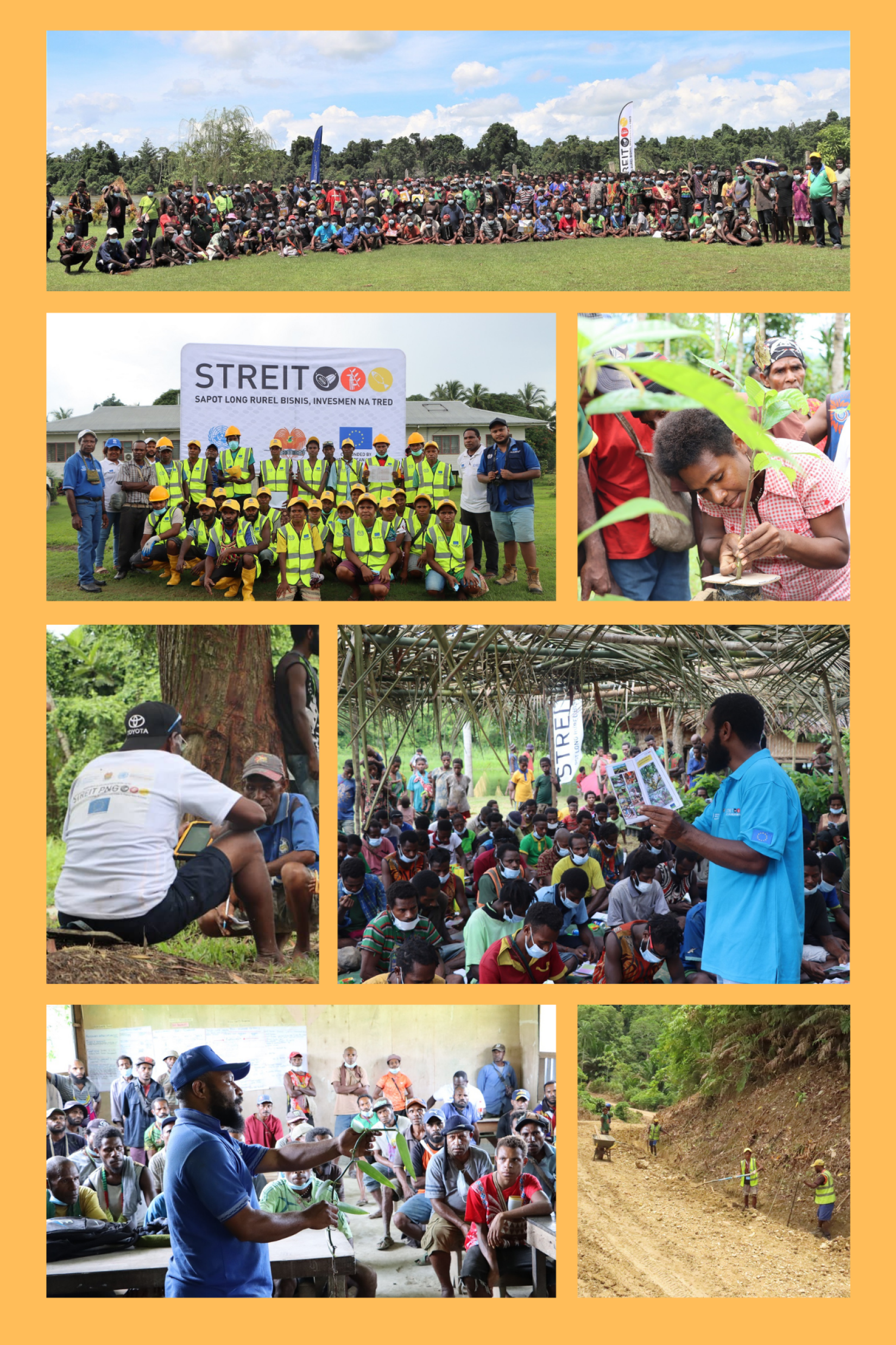Work of EU-funded UN Joint STREIT Programme in PNG reaches 55,000 households benefitting more than 330,000 people across the Sepiks
31 March 2022
|
Wewak, Papua New Guinea – Concluding its first Year of “Full Implementation Phase,” the EU-Funded UN Joint STREIT Programme in Papua New Guinea, in partnership with the national, provincial and local partners and stakeholders, has succeeded in reaching and delivering a broad range of technical assistance and support to 55 000 households and 331 000 people. |
|
In many of the communities, this was the first time in many years that smallholder farmers received formal and technical assistance and training, – offered in close collaboration with a range of PNG stakeholders. Amongst the main achievements is the inclusive and systematic approach of Public-Private partnerships with national and provincial government and partners, nationaly-recognised research institutions, civil society organisations, and private sector enterprises. The EU STREIT PNG Programme works with more than 40 Local Level Governments (LLGs) in 10 districts of Greater Sepik. Working for improvements to agricultural value chains With respect to work on agriculture value chains, this joint project has achieved the following results for community benefits:
Developing and improving climate-resilience transport infrastructure Developing climate-resilience transport infrastructure for farming communities across the Sepiks is critical to supporting improvements to value chains. The Programme, with support of line governmental and provincial departments, has recruited 138 local Road Maintenance Group members and, thus far, has provided maintainance to 80 km of farm-to-market roads out of the initial 300 Km target, in 2021, which created 18 000 days of work in total, bringing decent work for rural communities. EU-STREIT PNG has also developed the ‘Road Transport Information Management System’ (RoTIMS), an online accessible monitoring and management platform for transport infrastructure activities with the Department of Works. The following are results of improvements to infrastructure achieved by the Programme:
Improving access to financial services in remote rural areas As of January 2022, the EU-STREIT PNG Programme had adopted and began implementing a number of initiatives to improve access to financial services to remote rural areas in the Sepiks. In partnership with Digicel, Mibank and Mama Bank the Programme has rolled out a finance access and financial literacy initiative to provide ‘Digital Financial Services’ to 50 000 people, including 35 000 women, and opened mobile branches across rural communities of the provinces. The EU-STREIT PNG Programme is a fully-fledged part of the community in Papua New Guinea. We would like to once again express theirits utmost appreciation to the people of Sepik and Sandaun who have welcomed the programme and our staff into their communities and have joined the proposed activities with great enthusiasm and professionalism. As COVID-19’s restrictions on movement and delivery ease, we are rolling up our sleaves and looking forward with great anticipation as we move to the next level of our joint-collaboration and promised delivery. COVID-19 in PNG, a setback but not a roll-back Clearly the unfortunate convergence of COVID-19 and the beginning of this Programme has had a significant impact on our timetable of work, just as it has for every other commercial and development sector in PNG and elsewhere across Asia and the Pacific. Regardless of these stebacks, the implementing UN partners are fully committed to deliver the expected results for the people of the Sepiks and to accelerate action at every opportunity and in full in collaboration with our many partners. Who we are: The EU-STREIT PNG, is implemented as a UN joint Programme (FAO as leading agency, and ILO, ITU, UNCDF and UNDP as partners). It is the largest grant-funded Programme of the European Union in the country and the Pacific region. The Programme aims to to help improve the lives of the people from East Sepik and Sandaun province, by focusing on increasing sustainable and inclusive economic development of rural areas through improved economic returns and opportunities from cocoa, vanilla and fishery value chains while strengthening and improving the efficiency of value chain enablers, including the business environment, and supporting sustainable, climate-proof transport and energy infrastructure development.. |

|
MEDIA CONTACTS:
|











